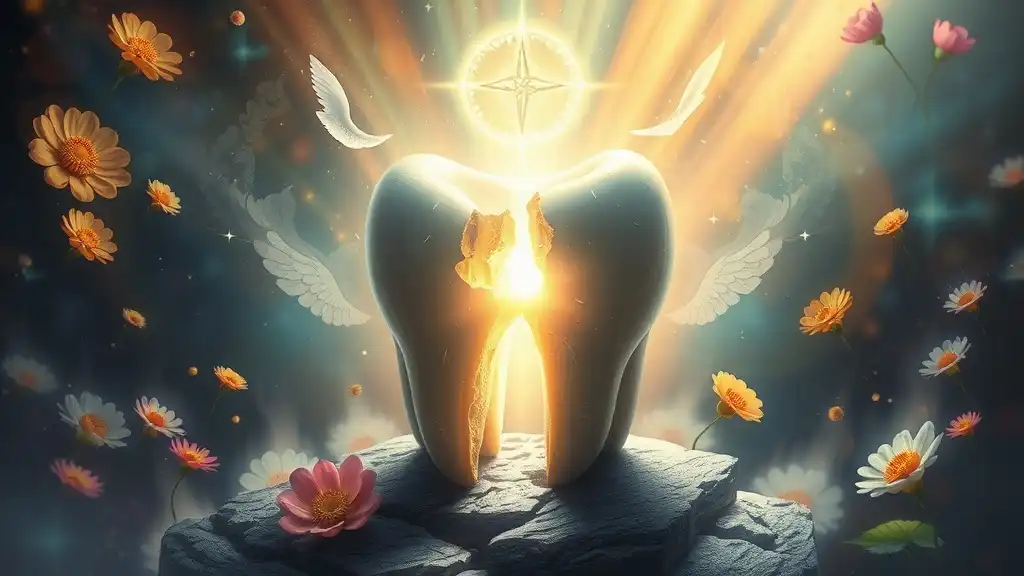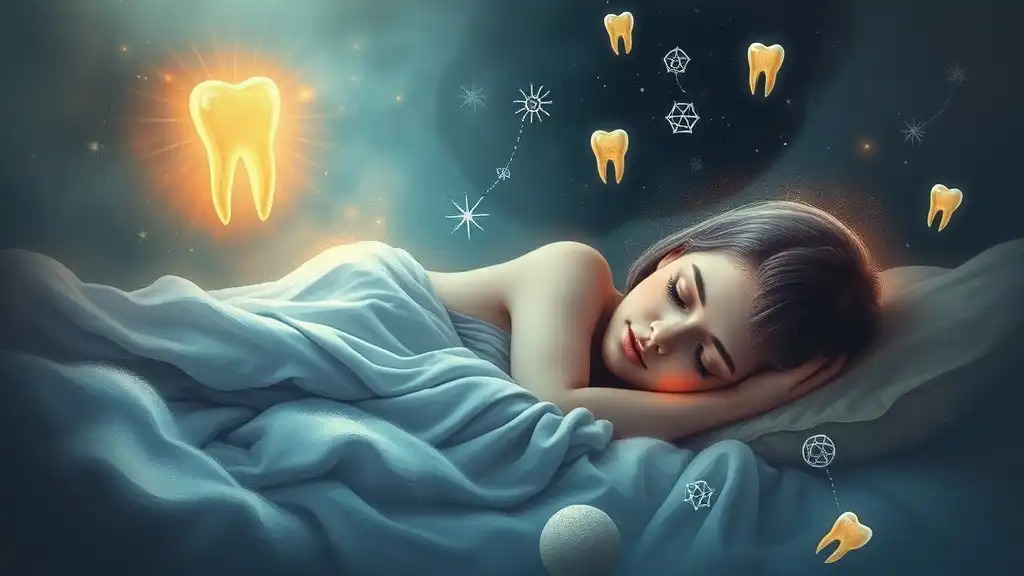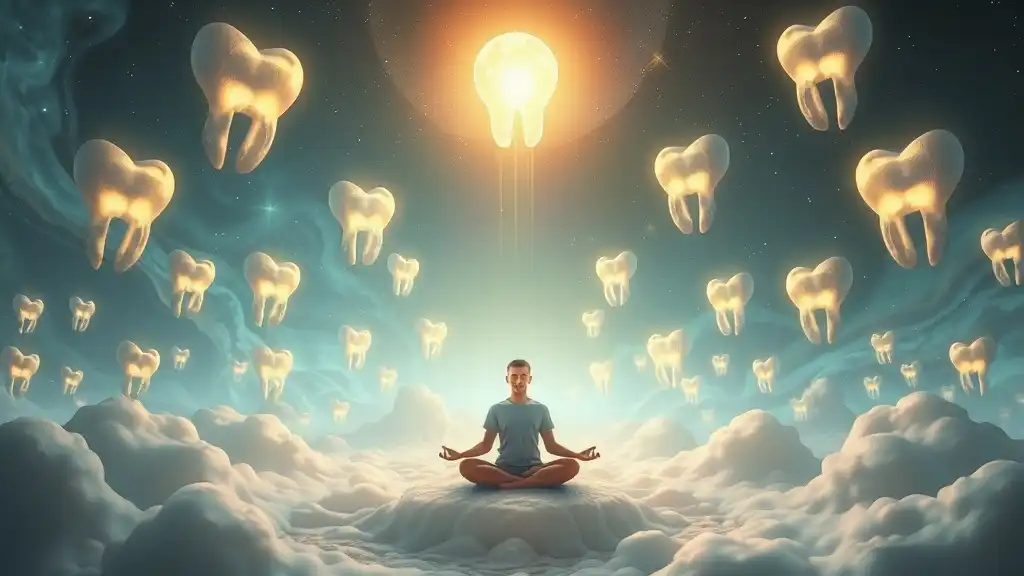Losing teeth, whether through aging, health issues, or other circumstances, can be a significant experience laden with various meanings. Beyond the physical implications, many cultures and spiritual traditions attribute deep symbolic significance to this experience, viewing it as a passageway through life's transitions. As we explore the multifaceted spiritual interpretations of tooth loss, it becomes clear that this seemingly mundane event can be a profound catalyst for personal growth and self-discovery.
Cultural Context of Losing Teeth
Historical Perspectives
Historically, the act of losing teeth has been surrounded by rich narratives and beliefs. Ancient cultures viewed tooth loss not merely as a health issue but as a discernible signal from the divine. In many Indigenous cultures, a child losing a tooth was a ritual transition into maturity, representing the shedding of innocence and the embrace of adulthood. Sailors and travelers in some communities believed that losing a tooth could signify an impending storm, interpreting it as a warning from the spiritual realm. Such beliefs underscore the universal tendency to connect physical experiences to spiritual messages.
Modern Views
In contemporary spiritual communities, the interpretations of losing teeth have evolved, but the underlying themes of change and personal evolution remain. Modern beliefs often converge on the idea that the physical state of our teeth reflects our emotional and psychological well-being. Practitioners of holistic health argue that dental issues may mirror deeper emotional struggles such as fear of vulnerability or issues with communication. Thus, losing teeth can serve as both a wake-up call and an opportunity for introspection.

Spiritual Significance of Losing Teeth
Transition and Transformation
Losing teeth is inherently linked to themes of transition and transformation. Just as children lose their baby teeth to make way for adult teeth, adults may experience tooth loss as an indication of personal growth and development. This process can represent letting go of outdated beliefs, relationships, or even habits that no longer serve your highest self. The uncomfortable feeling associated with losing teeth often mirrors the discomfort felt during times of personal change, prompting individuals to confront what they need to release in order to embrace renewal.
Release of Fears
Spiritually, losing teeth can symbolize the release of fears and insecurities. For many, teeth are closely tied to self-image, confidence, and communication. When teeth are lost, it can trigger anxieties about aging, beauty, and personal worth. However, this experience can also symbolize an opportunity to confront these fears head-on. By acknowledging your vulnerabilities, you can begin to heal and shed the burdens of societal pressure, leading to a deeper understanding of your self-worth independent of physical appearance.
Communication and Expression
Teeth play a crucial role in verbal communication; thus, they can symbolize how we express and assert ourselves in the world. Losing teeth could point to difficulties or fears surrounding communication and assertiveness. The act of losing a tooth can be interpreted as the universe prompting you to reflect on your ability to express your thoughts, ideas, and feelings. It encourages individuals to find their voice and articulate their truths, acting as a reminder that communication is a vital aspect of personal empowerment.

Common Spiritual Interpretations
Personal Power and Confidence
The connection between teeth and personal power is profound. For many, the beauty and functionality of one’s smile correlate with their self-confidence. Losing teeth can create feelings of powerlessness. In this context, tooth loss serves as a powerful reminder to reconnect with one's sense of empowerment. This experience may lead to a spiritual reckoning where you reclaim your confidence from within, recognizing that true worth extends beyond physical appearance.
New Beginnings
In many spiritual traditions, losing teeth can signify new beginnings and fresh starts. As old teeth fall away, space is created for new ones—a metaphor for clearing the way for new experiences and opportunities. Losing teeth should not solely be viewed with sadness or fear; rather, it should be embraced as an invitation to evolve, akin to turning a new page in a book. Allowing oneself to accept change can facilitate a more enlightened and fulfilling path forward.

Emotional and Psychological Impacts
Anxiety and Stress
The emotional turmoil of losing teeth can be closely linked to anxiety and stress about self-image and aging. Mental health plays a significant role in how individuals perceive the loss of teeth. Many may struggle with feelings of inadequacy or the overshadowing fear that losing teeth indicates a gradual decline in one's well-being. Understanding that these feelings are common and valid can help individuals navigate the emotional landscape that accompanies this experience.
Coping Mechanisms
To assist with the emotional impact of losing teeth, various mindfulness and spiritual practices can be incredibly helpful. Techniques such as meditation and guided visualization can provide clarity and a sense of grounding amidst the chaos. Practicing affirmations that reinforce self-love and acceptance can cultivate a more positive self-image. Rituals like journaling can help individuals uncover the root causes of their fears, leading to valuable insights and greater self-understanding.

Practical Steps to Address Concerns
Seeking Professional Guidance
While spiritual interpretations provide valuable insights, it is equally essential to consider the practical aspects of dental health. Consulting with a dentist when experiencing tooth loss serves both physical and spiritual purposes. A good practitioner can provide care and reassurance while also emphasizing the interconnectedness of your dental health and overall emotional well-being.
Spiritual Practices for Healing
When faced with the emotional repercussions of losing teeth, incorporating specific spiritual practices can be beneficial. Meditation allows you to center your thoughts, while visualization exercises can help envision a healthier self-image. Engaging in journaling not only aids in processing feelings but also cultivates personal growth through reflection. These practices become vital tools on a transformative journey toward healing.

Conclusion
Losing teeth is a multifaceted experience that transcends the physical realm, resonating deeply within the spiritual spectrum. The powerful meanings attached to this experience can illuminate paths for personal growth, self-discovery, and emotional healing. By embracing the changes and challenges associated with tooth loss, individuals can embark on transformative journeys that ultimately lead them toward a more empowered and authentic version of themselves.



















